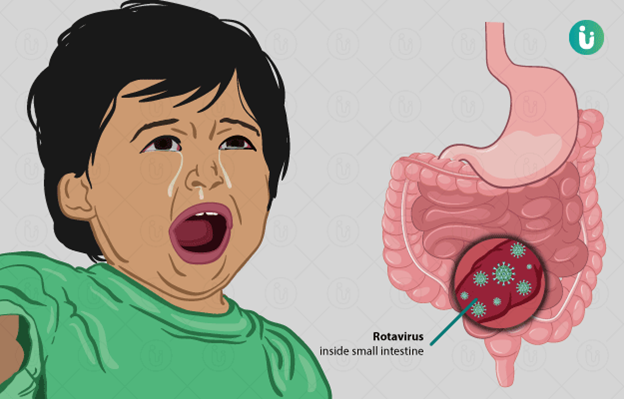Calcium carbonate is given with meals to a child with chronic renal disease. The purpose of this is to achieve which desired result?
Bind phosphorus.
Increase absorption of fat-soluble vitamins.
Stimulate appetite.
Prevent vomiting.
The Correct Answer is A
Choice A rationale:
Calcium carbonate is often given with meals to individuals with chronic renal disease, especially those on dialysis. One of the primary purposes is to bind dietary phosphorus in the gastrointestinal tract. In chronic renal disease, the kidneys are less effective at filtering out excess phosphorus from the blood, leading to elevated phosphorus levels (hyperphosphatemia). Elevated phosphorus levels can contribute to bone and mineral disorders in these patients. Calcium carbonate forms insoluble calcium phosphate complexes with dietary phosphorus, preventing its absorption and facilitating its elimination from the body through the feces.
Choice B rationale:
While calcium carbonate can interact with fat-soluble vitamins like vitamin D, the primary reason for administering it to individuals with chronic renal disease is to manage phosphorus levels. Calcium carbonate can bind phosphorus and prevent its absorption, which is particularly important for patients with compromised kidney function.
Choice C rationale:
Stimulating appetite is not a primary purpose of administering calcium carbonate to children with chronic renal disease. The main focus is on managing phosphorus levels and preventing complications associated with hyperphosphatemia.
Choice D rationale:
Preventing vomiting is not a primary purpose of giving calcium carbonate to children with chronic renal disease. Calcium carbonate is typically used to manage phosphorus levels and complications related to hyperphosphatemia in this population.
Nursing Test Bank
Naxlex Comprehensive Predictor Exams
Related Questions
Correct Answer is A
Explanation
The correct answer is choice A: Rotavirus.
Choice A rationale:
Rotavirus is a viral pathogen that frequently causes acute diarrhea in young children. It is highly contagious and is responsible for a significant portion of severe diarrhea cases worldwide. Rotavirus infections are most common in infants and young children, and they can lead to dehydration, especially in developing countries where access to clean water and proper sanitation might be limited.

Choice B rationale:
Salmonella organisms can cause food poisoning and gastrointestinal infections that lead to diarrhea. However, they are more commonly associated with bacterial infections rather than viral-induced acute diarrhea.
Choice C rationale:
Shigella organisms are also bacterial pathogens that cause diarrhea, specifically bacillary dysentery. While they can cause severe diarrhea, they are not the viral pathogen typically responsible for acute diarrhea in young children.
Choice D rationale:
Giardia organisms are parasites that can cause gastrointestinal infections leading to diarrhea. However, they are not viruses, and they are less commonly associated with acute diarrhea in children compared to rotavirus.
Correct Answer is C
Explanation
The correct answer is choice C. Treating the underlying disease.
Choice A rationale:
Administration of digoxin. Administering digoxin is not the initial goal for the treatment of secondary hypertension. Digoxin is a medication commonly used to treat heart failure and certain arrhythmias, but it is not a primary intervention for hypertension. The rationale for this choice being incorrect lies in the fact that digoxin primarily affects the heart's contractility and is not a preferred option for managing high blood pressure.
Choice B rationale:
Weight control and diet. Weight control and dietary modifications are important aspects of managing hypertension, both primary and secondary. However, they are not the initial goal for the treatment of secondary hypertension. While these lifestyle modifications can contribute to blood pressure reduction, the primary focus in secondary hypertension is to identify and address the underlying condition causing the high blood pressure.
Choice C rationale:
Treating the underlying disease. Correct Answer. The initial goal for the treatment of secondary hypertension is to address the underlying disease or condition that is causing the elevated blood pressure. Unlike primary hypertension, which often lacks a specific underlying cause, secondary hypertension results from an identifiable condition such as kidney disease, hormonal disorders, or certain medications. Treating the root cause can lead to blood pressure normalization.
Choice D rationale:
Administration of β-adrenergic receptor blockers. Administering β-adrenergic receptor blockers is not typically the initial goal for the treatment of secondary hypertension. While these medications can lower blood pressure by blocking the effects of adrenaline and reducing heart rate, they are not the first-line approach for addressing the underlying cause of secondary hypertension.
Whether you are a student looking to ace your exams or a practicing nurse seeking to enhance your expertise , our nursing education contents will empower you with the confidence and competence to make a difference in the lives of patients and become a respected leader in the healthcare field.
Visit Naxlex, invest in your future and unlock endless possibilities with our unparalleled nursing education contents today
Report Wrong Answer on the Current Question
Do you disagree with the answer? If yes, what is your expected answer? Explain.
Kindly be descriptive with the issue you are facing.
